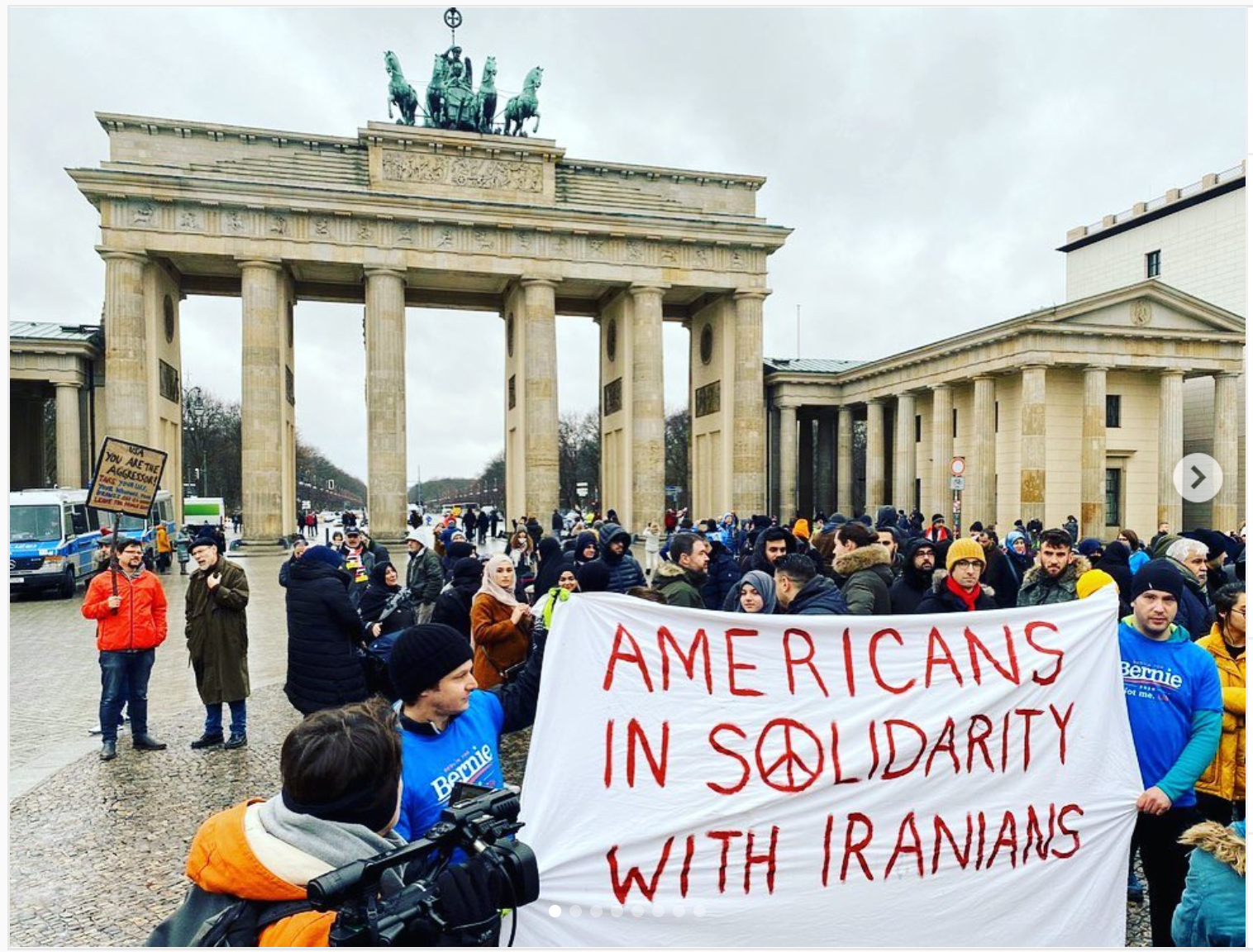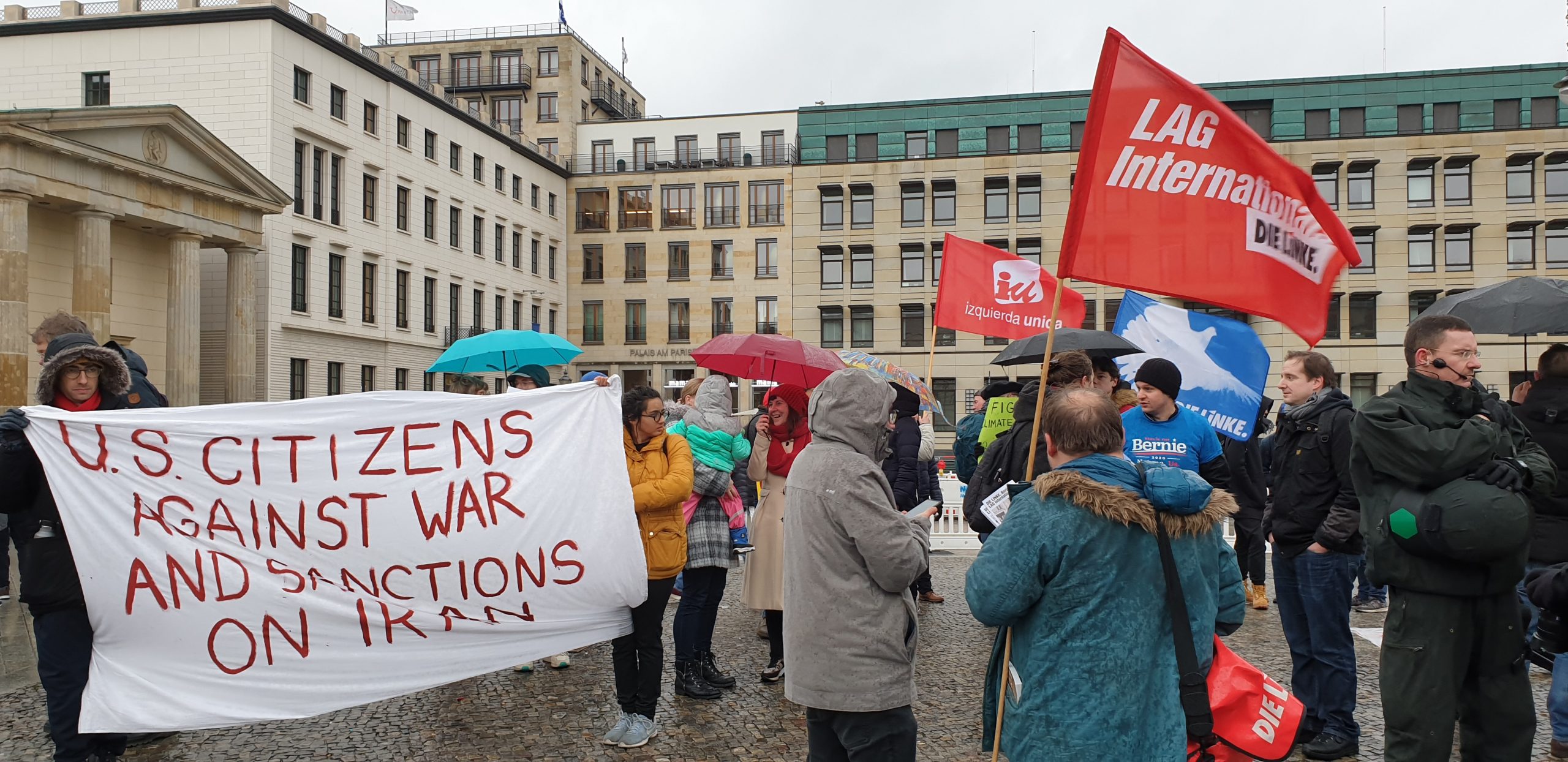It was inevitable that the fallout from the US airstrike that killed Iranian General Qasem Soleimani would spill into presidential politics. Everything spills into presidential politics these days, and this is without a doubt a major story.
The US presidency seems to have become the sole forum in which the majority of Americans conceive power to be contested. I’m not sure what Zurcher means here by „these days“ and perhaps he doesn’t either. The use of this phrase does suggest an exceptional quality to the current moment, and the possibility of a return to some other state at some point in the future. What is that state, what is that point in time conceived to be? What is the route to this regained normalcy thought to consist of?
If the end result is a US withdrawal from Iraq, the politics of the situation could be turned on its head, with hawks doing the howling and non-interventionists celebrating.
Are non-interventionists now howling? Is that the process currently taking place in the US?
The first survey following the Soleimani strike suggests the public will be as sharply divided on Trump’s handling of the situation as it has been on everything else this president has done.
…
The drama in the Middle East may also help the president by turning national attention away from his impeachment and looming Senate trial.
„the situation“? At a Saturday demonstration at the Brandenburg Gate a young American woman took the bullhorn and announced the group protesting didn’t want the US to become involved in Middle Eastern wars.
On the Democratic side, the Soleimani strike could invigorate an anti-war movement within the party that has not seriously flexed its muscles since the height of the Iraq War.
Bernie Sanders, one of the Democratic front-runners, was quick to stake out his peace candidate credentials.
„I was right about Vietnam. I was right about Iraq. I will do everything in my power to prevent a war with Iran,“ he wrote in a tweet that included a video about his anti-war efforts. „I apologize to no one.“
What does it mean for an anti-war movement within the US Democratic Party to seriously flex its muscles? Are „I apologize to no one“ conceived of as fighting words? Is this a call to battle? This would be non-violent battle, of course, perhaps fought by pasty obese pink-knit-pussy-cap-wearing minions. At demonstration time on Saturday I was alone, though very quickly joined by a sign-carrying German software engineer (software engineers for the win, let me throw in here). The Americans arrived shortly after, and called it quits after 45 minutes of the proposed three hour demonstration. Leaving was understandable – who could have foreseen a cold rain would fall in January. This rain apparently avoided the couple guys demonstrating about sanctions against Cuba, and it definitely was not falling on the hundreds of Arabic-speakers who remained able to chant „Raus, raus, USA!“.


Buff guy on the right carrying a helmet and speaking into a headset? Not a protester.
Those statements stood in contrast to other Democratic candidates, who both condemned Soleimani’s record of support for proxy wars against US forces in the region and criticised the wisdom of the attack.
„There are serious questions about how this decision was made and whether we are …prepared for the consequences,“ said Pete Buttigieg. Elizabeth Warren called Soleimani a „murderer“. Amy Klobuchar expressed concerns for US troop safety in the region.
Meanwhile, former New York Mayor Michael Bloomberg took aim at Sanders, saying it was „outrageous“ for the Vermont senator to call the strike an „assassination“ (a word used by several Democratic candidates).
„This is a guy who had an awful amount of American blood on his hands,“ Bloomberg said. „Nobody that I know of would think that we did something wrong in getting the general.“
…
The Huffpost poll on the Soleimani strike had some particularly good news for front-runner Joe Biden, with 62% of Democratic and Democratic-leaning voters saying they „trust“ him on Iran. That’s well ahead of Sanders and Warren, who 47% said they trust on the subject.
Some of these sentences contain question within question: what does it mean to be a „Democratic-leaning voter“? This is someone unsure whether they will vote for Trump or Sanders? What can such a person’s understanding of the world be: what does it indicate about this individual that s/he „trusts“ Biden on Iran, or doesn’t „trust“ Sanders or Warren? How many of these people can locate Iran on a world map? What brief history might they give of Iran in the 20th Century? What might Biden, Sanders, or Warren’s summary history of Iran be?